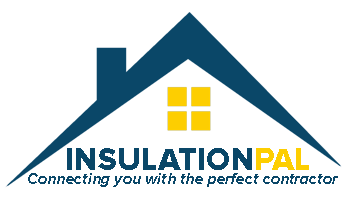This Comprehensive Resource to Home Insulation: Ensure Your Household Comfortable

Regarding building a comfortable and energy-efficient home, insulative material plays a critical role. It is frequently underestimated but vital for keeping your family comfortable no matter the time of year. Regardless of whether you are dealing with the harsh cold of winter or the scorching heat of summer, proper insulation ensures a consistently agreeable indoor climate. In this comprehensive guide to home insulation, we will examine everything you need to know, from evaluating your present insulation levels to the various types on the market and how they can substantially affect your home’s comfort and energy costs.
Understanding the value of insulation goes further than just ease; it can lead to savings you cash and enhance your home’s value. With the appropriate information, you can make informed decisions that will not only elevate your living space but also reduce your carbon footprint. As we dig deeper into different aspects of home insulation, you will uncover expert insights, DIY tutorials, and important factors that will empower you to convert your home into an sustainable haven.
Comprehending Thermal Insulation Varieties and R-Values
Regarding insulating your house, choosing the suitable type of thermal barrier is essential for gaining optimal coziness and power efficiency. The most common categories are batts insulation, blown-in insulation, and spray foam insulation. Batts insulation is typically made from fiberglass and is available in sheets or prearranged panels, which makes it an simple option for DIY projects. Blown-in insulation consists of loose fibers that can occupy non-standard spaces, providing superior coverage in hard-to-reach areas. Spray foam insulation provides superior air sealing qualities and can expand to fill gaps, making it suitable for new new builds and remodels.
R-value is a crucial factor to consider when choosing insulation. insulation companies indicates the insulation's resistance to heat flow, with elevated R-values signifying better insulating properties. Different insulation types have varying R-values depending on their composition and thickness. For instance, glass fiber batts insulation commonly has an R-value of 2.9 to 3.8 per inch, while spray foam can range from 5.0 to 7.0 per inch. Understanding the R-value helps you determine how much insulation you need to maintain your home cozy year-round.
Moreover, it’s crucial to consider your local climate when selecting insulation. Frigid climates typically need greater R-values to retain heat, while hotter regions may require insulation that also protects against heat gain. Evaluating your house's existing insulation and understanding the R-values can guide you in formulating informed choices that improve your home's power effectiveness and overall coziness.
Do It Yourself Insulation Techniques and Maintenance
When considering do-it-yourself insulation techniques, one of the initial actions is making sure proper air sealing throughout your home. Before adding any kind of insulation, inspect areas such as doors, windows, and electrical outlets for air leaks. Use caulk and weatherproofing to seal these leaks, as they not only improves energy efficiency but also makes your house more comfortable. Remember, sealing Insulation contractor is often just as crucial as the insulation itself, as it stops conditioned air from leaking and outside air from entering.
After your house is properly sealed, you might want to explore various insulation options that are appropriate for your DIY project. Batt insulation is easier to work with for many homeowners, as it is available pre-measured and is installed between joists and studs. Blown-in insulation requires additional specific equipment but can effectively fill irregular spaces effectively. Both types have their merits, so assess the specific needs of your place and your comfort in handling the materials. Ensure you wear appropriate safety gear when installing insulation, particularly if you are using foam insulation or fiberglass products.
Caring for your thermal insulation is also vital for long-term effectiveness. Schedule regular inspections of your attic, crawl spaces, and any other insulated areas, watching for moisture infiltration or signs of insect activity, which can degrade insulation. If you discover problems, address them promptly to prevent additional damage. Regular maintenance will help keep your insulation working effectively, ensuring your family remains comfortable year-round while saving on energy costs.
Benefits of Thermal Insulation Beyond Cozy Living
Thermal insulation is frequently linked with maintaining a pleasant climate in your residence, but its benefits extend well beyond simple convenience. One major benefit is energy efficiency. Proper thermal insulation reduces the demand on heating systems and air conditioning systems, leading to reduced energy bills. By minimizing thermal transfer, it maintains your home warm in the winter months and cool in the summer months, contributing to a much more green lifestyle. The energy savings can be significant, allowing homeowners to direct funds to other areas of their lives.
One more benefit of insulation is improved indoor air quality. It helps to reduce air leaks, which can introduce outdoor pollutants and allergens. A well-insulated home maintains a far more consistent indoor environment, reducing the influx of particles, allergens, and various irritants. Additionally, some types of insulation materials can also assist to absorb sound, creating a quieter indoor atmosphere. This is particularly beneficial for households with kids, home offices, or anyone seeking a peaceful living environment.
Finally, insulation can significantly increase your property's value. Prospective buyers often prioritize energy-efficient efficiency and coziness when searching for a property. Upgrading your thermal barrier can serve as a quiet yet powerful enhancement, making your property more attractive in the real estate market. Committing in attic insulation -quality thermal insulation is not just about short-term ease; it's a long-term strategy that pays off through reduced energy costs and a higher resale value when it's the moment to relocate.

